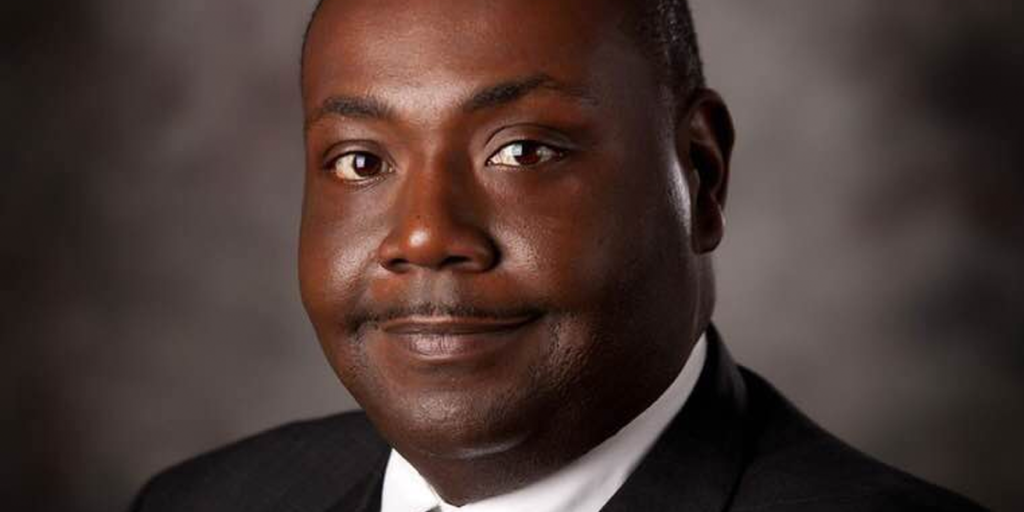Roy Moore releases open-letter to Sean Hannity

Alabama U.S. Senate candidate Roy Moore published an open-letter to Fox News host Sean Hannity Wednesday night pushing back against allegations of sexual misconduct from five women who claim he sexually pursued them when he was in his 30s and they were in their teens. The letter came less than 24 hours after Hannity issued an ultimatum, telling his viewers “the judge has 24 hours” to explain his “inconsistencies.” Read Moore’s full letter below: Dear Sean: I am suffering the same treatment other Republicans have had to endure. A month prior to the general election for U.S. Senate in Alabama, I have been attacked by the Washington Post and other liberal media in a desperate attempt to smear my character and defeat my campaign. Over the last 40 years I have held several public offices, including Deputy District Attorney, Circuit Judge, and Chief Justice of the Alabama Supreme Court. In addition to running five statewide and three county campaigns for public office, I have been involved in two major controversies that attracted national attention, one about the Ten Commandments and the other the sanctity of marriage. The Alabama Judicial Inquiry Commission, Court of the Judiciary, and Attorney General have investigated, scrutinized, examined, and vetted me, not to mention every opposing candidate against whom I have run. I have been married for almost 33 years to my wife Kayla. We have four children and five granddaughters. We are in the process of investigating these false allegations to determine their origin and motivation. For instance, we have documented that the most recent accuser, Beverly Nelson, was a party in a divorce action before me in Etowah County Circuit Court in 1999. No motion was made for me to recuse. In her accusations, Nelson did not mention that I was the judge assigned to her divorce case in 1999, a matter that apparently caused her no distress at a time that was 18 years closer to the alleged assault. Yet 18 years later, while talking before the cameras about the supposed assault, she seemingly could not contain her emotions. My signature on the order of dismissal in the divorce case was annotated with the letters “D.A.,” representing the initials of my court assistant. Curiously the supposed yearbook inscription is also followed by the same initials—”D.A.” But at that time I was Deputy District Attorney, not district attorney. Those initials as well as the date under the signature block and the printed name of the restaurant are written in a style inconsistent with the rest of the yearbook inscription. The “7’s” in “Christmas 1977” are in a noticeably different script than the “7’s” in the date “12-22-77.” I believe tampering has occurred. Are we at a stage in American politics in which false allegations can overcome a public record of 40 years, stampede the media and politicians to condemn an innocent man, and potentially impact the outcome of an election of national importance? When allegations of events occurring 40 years ago—and never before mentioned during a 40-year career of public service—are brought out and taken seriously only 30 days before a critical election, we may be in trouble as a country. I adamantly deny the allegations of Leigh Corfman and Beverly Nelson, did not date underage girls, and have taken steps to begin a civil action for defamation. Because of that, at the direction of counsel, I cannot comment further. – Roy S. Moore.
Alabama AG Steve Marshall urges SCOTUS to protect prayer at public meetings

Alabama Attorney General Steve Marshall wants to protect prayer at public meetings. Marshall joined a coalition of 22 states Wednesday urging the U.S. Supreme Court to protect the practice of lawmaker-led prayer at public meetings. “Lawmaker-led prayer is woven into the fabric of American society dating back to the founding of our Republic,” observed Marshall. “Public prayer is both constitutional and a common practice throughout our country. Today more than 35 states and countless local governments permit lawmakers to offer prayer. I share Justice Scalia’s perspective that “to deprive our society of (this) important unifying mechanism…is as senseless in policy as it is unsupported by law.” The effort stems from a case out of Rowan County, N.C. where a lower court ruled the county board of commissioners were not allowed to give brief invocations. The coalition of states filed the friend-of-the-court brief brief calling on the high court to hear arguments in the case of Lund vs. Rowan County and confirm the constitutionality of public prayer led by lawmakers. Such a decision would alleviate confusion among the lower federal courts and strike down a recent ruling in the Fourth Circuit that the Rowan County Board of Commissioners’ practice of opening its public meetings with a commissioner-led prayer violates the Establishment Clause of the First Amendment. The brief notes that state legislatures, including in Alabama, have opened public sessions with lawmaker-led prayer for much of this country’s history. “Both of Alabama’s legislative chambers have allowed members to offer prayers for more than one hundred years. A member of the House of Representatives, for instance, gave the invocation in the state Senate in 1873. And during the 1875 legislative session, Mr. Nelson and Mr. Wilson, members of the House of Representatives, opened House sessions with prayers.” Alabama filed its brief in support of free expression of faith along with West Virginia, Arizona, Arkansas, Colorado, Georgia, Indiana, Kansas, Louisiana, Michigan, Missouri, Montana, Nebraska, Nevada, Ohio, Oklahoma, South Carolina, South Dakota, Texas, Utah, and Wisconsin, along with the Governor of Kentucky. A copy of the brief is available here.
Personnel note: Bradley welcomes 8 new Birmingham associates

Birmingham-based Bradley Arant Boult Cummings LLP on Wednesday announced the addition of 24 new attorneys joining the firm as associates — eight in its Birmingham office. “We are thrilled to welcome this diverse group of attorneys to contribute to the successes of our clients across all of Bradley’s offices,” said Bradley Chairman of the Board and Managing Partner Beau Grenier. “We look forward to benefitting from their fresh thinking and to fostering their ongoing development and achievements.” Including the new associates, the firm has added 35 attorneys in 2017, for a current firm-wide total of 533 attorneys. The firm’s new associates in Birmingham are: Jared C. Batte is a member of the Banking & Financial Services Practice Group, representing clients in real estate, finance and banking transactional matters. He received his J.D. (magna cum laude) from the University of Georgia School of Law, where he served as an articles editor for the Georgia Law Review. He earned his Bachelor of Science (summa cum laude) from Auburn University. Angelique A. Ciliberti is a member of the Litigation Practice Group. Her diverse general litigation practice includes the representation of pharmaceutical and other product manufacturers in state and federal courts throughout the country. In addition, she currently represents an Alabama death row inmate pro bono. She earned her J.D. from the University of Virginia School of Law (UVA Law). During law school, she served as president of the UVA Law Innocence Project Pro Bono Clinic and was a member of the Managing Board of the Virginia Journal of Social Policy & Law. She earned her Bachelor of Arts (summa cum laude) from Wake Forest University. Niya T. McCray is a member of the Litigation Practice Group. She previously served as an intern with Bradley and with the in-house legal departments of Bridgestone and USAA. She received her J.D. from Vanderbilt University Law School (VLS). During law school, she assisted veterans with their legal needs through the VLS Medical-Legal Partnership Clinic. She received the VLS Scholastic Excellence Award for her performance in Information Privacy and was inducted into the Phi Delta Phi Legal Honor Society. She also was a Chancellor’s Scholar and the first three-time recipient of the Senator Avon N. Williams Jr. and Hon. Robert Lillard Law School Scholarship. McCray earned her Bachelor of Arts from Vanderbilt University. David W. Morton is a member of the Corporate and Securities Practice Group and focuses his practice on public finance matters. He earned his J.D. (magna cum laude) from the University of Alabama School of Law, where he was an articles editor for the Alabama Law Review and a member of the Campbell Moot Court Board. He received his Bachelor of Science (summa cum laude) from Auburn University. Ryan R. Priddy is a member of the Litigation Practice Group, representing clients in financial services litigation matters. He earned his J.D. (cum laude) from the University of Alabama School of Law, where he was senior editor of the Alabama Law Review. He holds a Bachelor of Science (summa cum laude) from the University of Alabama. Candice L. Rucker is a member of the Appellate Practice Group. She clerked for Judge Leslie H. Southwick of the U.S. Court of Appeals for the Fifth Circuit. She earned her J.D. (summa cum laude) from Mississippi College School of Law, where she was executive editor of the Mississippi College Law Review and vice chair of internal affairs for the Moot Court Board. Rucker received her Bachelor of Arts (summa cum laude) from the University of Alabama. D. Butler Sparks is a member of the Corporate and Securities Practice Group. He focuses his practice on advising public and private clients in a variety of corporate transactions, including mergers and acquisitions, joint ventures, private equity transactions, business entity formation, securities offerings, financing transactions and corporate reorganizations. He earned his J.D. from the University of Virginia School of Law, where he served on the editorial board of the Virginia Law Review and on the managing board of the Virginia Law and Business Review. He received his Bachelor of Business Administration (summa cum laude) from Mississippi State University. Lance W. Waters is a member of the Financial Services Litigation Practice Group. He served as a law clerk to Judge Yvette Kane of the U.S. District Court for the Middle District of Pennsylvania. He earned his J.D. (magna cum laude) from Tulane University Law School, where he was a managing editor for the Tulane Law Review. He received his Bachelor of Arts (summa cum laude) from Tulane University.
Macon County official Harold Powell dies on work trip in Italy

A Macon County official died while on a state economic development trip to Italy, Alabama Gov. Kay Ivey‘s office confirmed Wednesday. “It is with great sorrow that I learned today of the passing of Harold Powell Jr. while representing the State of Alabama and Macon County on an economic development mission to Italy,” Ivey said in a statement. Harold Powell, served as Town Clerk in Shorter and Secretary-Treasurer of the Macon County Economic Development Authority. “Harold was a leader in Macon County and the Town of Shorter. He was working to position his community to become the home of a Leonardo aircraft manufacturing facility. I send my condolences to Harold’s mother, Shorter Mayor Wille Mae Powell, his father, Harold Powell Sr., his entire family and his many friends.” No other details about his death have been released. But fellow colleagues and those who knew him have taken to social media to express their condolences. “Our trip was dampen[ed] by the death of our friend and colleague Harold Powell but we know that his spirit is interceding on behalf of the people of Macon County, because he truly loved Macon County. RIP!” wrote Louis Maxwell, Chairman of Macon County Commission on Facebook Tuesday. “Yes, he did LOVE Shorter and Macon County. His energy will be missed by so many,” posted Tuskegee resident Stephanie Simon. Funeral details have yet to be announced.
Fox News’ Sean Hannity gives Roy Moore ultimatum: Explain yourself or get out of the race

Once an ardent supporter of Alabama Senate nominee Roy Moore, Fox News’ Sean Hannity has stopped defending the embattled Republican. Late Tuesday night, Hannity told his viewers “the judge has 24 hours” to explain his “inconsistencies.” “You must immediately and fully come up with a satisfactory explanation for your inconsistencies,” Hannity demanded. “You must remove any doubt. If he can’t do this, then Judge Moore needs to get out of this race. You know I do not and will never rush to judgment, because we have seen the media and politicians get it wrong so many times.” Moore, who is running for Alabama’s U.S. Senate seat vacated by Attorney General Jeff Sessions, is fending off accusations from five women who allege he sexually pursued them when he was in his 30s and they were in their teens. The news has caused rapid fallout from dozens within the Republican Party who have called on him to withdraw his name from next month’s special election if the allegations are true. “The American people deserve a hundred percent truth and honesty,” Hannity added. “We need correct answers the first time on issues this serious. Judge Moore you owe that to the people of Alabama, the Republican Party that you represent and to the country which is suffering under so many problems. We deserve answers, consistent answers, and truth.” Moore has denied the sexual misconduct allegations. He faces Democrat Doug Jones in a special election on Dec. 12.
Daniel Sutter: Mandates and the cost of kindness

Last spring Alabama’s legislature mandated coverage of autism therapy by health insurance plans. Such mandates provide benefits to people without spending our tax dollars, but threaten the viability of health insurance. The main issue for autism coverage was Applied Behavioral Analysis (ABA), an intensive therapy program with demonstrated benefits for patients. Helping persons with disabilities lead fulfilling lives is a worthwhile goal. We should celebrate a therapy helping persons with autism. But the therapy is expensive. Few families can afford the $15,000 (or more) a year cost out-of-pocket. Mandating insurance coverage spreads the cost across all patients. We decided to help autistic children receive ABA regardless of their parents’ incomes. Although some business and insurance groups opposed the mandate, the legislature still decided to help. But similar issues are sure to arise in the years to come. I think that state lawmakers should have provided this benefit out of tax dollars. Mandates contribute to the slow death of health insurance, which may lead to more extensive government involvement with health care in the future. Insurance mandates allow lawmakers to provide benefits to people without spending tax dollars. Spending state funds, by contrast, would require either increasing taxes or cutting other spending. An insurance mandate spreads out the cost; coverage might only cost a few more dollars per policy per year. Furthermore, the link between the mandate and cost increases for policyholders will be indirect. This process gets repeated over and over. States have enacted around 2,000 mandates for 70 different services over the past thirty years, about 40 per state. In each case, the coverage likely represents a “good” cause and benefits some families, like with autism therapy. The accumulation of mandates forces employers to reduce salaries or increase deductibles and co-pays. Many employees never use most of the mandated coverage. Eventually employers stop providing health insurance as a benefit, increasing the ranks of the uninsured and the constituency for further government intervention. When we decide to help autistic children receive ABA, we are spending somebody’s money. Ultimately government money is our money. Taxes are how we should pay for things that we direct government to do. Insurance mandates act like a tax, but the hidden element leads to poor decisions. Suppose that autism therapy will cost $30 million a year. If lawmakers raised taxes, citizens would see the full cost. The weak link between mandates and higher costs for policyholders makes mandates less visible; perhaps they have a perceived impact equal to $10 million in taxes. Suppose we decide that helping autistic children is worth $20 million per year. If we think that the cost is $10 million because of the mandates, this looks like a good deal. But in reality the benefits are less than the cost. Another option which might be even better is philanthropy to assist families unable to pay the full price. Charities, I think, do a much better job than government verifying need and controlling cost. Insurance creates a third party payment problem: neither the patient nor provider pays the bills, and so neither worries about cost. We can always spend more on any service. For example, Board Certified Behavioral Analysts (most expensive), Board Certified Assistant Behavioral Analysts, or registered behavioral technicians (least expensive) can provide ABA. If we ignore the cost, making greater use of Board Certified Behavioral Analysts is always attractive. We could also extend the therapy and provide it to more children. Mandates make insurance companies even less likely to contain costs since employers cannot drop mandated coverage due to expense. Government also seems unlikely to wisely control costs. Americans believe strongly in the equality of opportunity. We are willing to help children to make this a reality, by paying for things like autism therapy. When we choose to help, we should be willing to bear the cost. Insurance mandates only appear to lower the cost, and contribute to the slow implosion of the health insurance market. ••• Daniel Sutter is the Charles G. Koch Professor of Economics with the Manuel H. Johnson Center for Political Economy at Troy University and host of Econversations on TrojanVision. The opinions expressed in this column are the author’s and do not necessarily reflect the views of Troy University.
Tuskegee mayor: T-100 manufacturing facility will lift region

Sitting in the back seat of an F-16 jet on a flight over Tuskegee, Mayor Tony Haygood looked down at Moton Field and envisioned the historic airfield’s future as the production site of the U.S. Air Force’s next jet training aircraft. “From that height, it is amazing how you can see the whole layout of things at Moton Field and where the runway expansion would be,” Haygood said. “There’s plenty of space for it, and we’ll be doing some other improvements.” Earlier this year, global aerospace company Leonardo selected Moton Field as the manufacturing site for its T-100 advanced trainer jet if the Air Force chooses the aircraft as its next-generation trainer. The project would bring 750 jobs to the airfield where the pilots of the Tuskegee Airmen received their training. Haygood, who is traveling to Italy with an Alabama delegation to tour a Leonardo aircraft factory this week, said an in-depth look at the company’s manufacturing operation will assist Macon County’s preparations for the Tuskegee facility. “This is like advance preparation that gives us an opportunity to see, hear and understand how we need to get ready,” he said. Made In Alabama caught up with Haygood in Tuskegee before the Alabama team departed so he could share his insights on the Leonardo T-100 jet trainer project planned for Moton Field. Here’s what he said. Q: What would the Leonardo T-100 manufacturing facility mean for Tuskegee and the region? A: It would be a tremendous boost to this community. For Tuskegee, it would be the largest project we’ve had in our history. It would be a big boost for the entire economy of south central Alabama and would impact the entire state as well. For us, it would mean high-quality jobs, and it would trigger a revitalization of our entire economy. Q: How have Tuskegee and Macon County been preparing for a project of this magnitude? A: We have been working within the region, with Auburn, Montgomery and other cities, to position ourselves as a viable site for economic development. Having the runway at Moton Field, and the space around it, allows us to pursue this project. We’re capable of expanding the runway to 8,000 feet. We have water service at the site. We have a major interstate – I-85 — right there and CSX railway there. So we have the basic ingredients in terms of transportation and location. Q: Can the area provide the workforce for the Leonardo T-100 facility? A: We can provide a quality workforce, and we will have assistance from the state. Go back to the Tuskegee Airmen. People didn’t think they could fly advanced aircraft, but given the opportunity and the training, they not only flew, they excelled. It’s really the same story today. Give people the opportunity, give them the support, and we can develop the workforce and the expertise that is needed. Click here to read more. Republished with permission from the Alabama NewsCenter.
Steve Flowers: An exciting time for Alabama community Colleges

In March of this year, the Alabama Community College System took a giant leap forward when it brought on a giant in state government and one of Alabama’s preeminent leaders, Jimmy Baker, to be Chancellor. When you have a conversation with Chancellor Baker, he uses words that you do not normally hear in the same sentence, like exciting and community college. He says it is an exciting time. For a myriad of reasons, across the state, community colleges and technical training have been viewed as second best when it comes to higher education options. Sit down with Chancellor Baker and you will leave convinced that Alabama’s community colleges can do more to move the state forward than any other entity in the state. For an institution that in the past had a history of caring a lot about buildings, he is singularly focused on doing what is in the best interest of students. To him, that means an open door policy at every college across the system. Anyone looking to better themselves should be able to walk in the door and find opportunity at their local community college. For some that opportunity looks like core academic coursework to transfer to a four-year or advanced degree at a fraction of the cost. For others that means stackable credentials and skills training to leave the classroom and step directly into a career. It could also mean general literacy and workforce skills or specific job training for a specific industry. The paths are as varied as the student population, which ranges from high school students participating in dual enrollment classes to adult learners who are seeking to advance their careers and everything in between. The Alabama Community College System consists of 24 community and technical colleges residing in each of the state’s urban centers as well as rural locales across the state. Additionally, extensive workforce development training for Alabama business and industry through the Alabama Technology Network also resides within the system. Baker argues that the system’s reach across the state and each college’s connection with their local community makes them the most adaptable, allowing each college to made adjustments based on the needs of their service area. Imagine if this were the case in every community: a new auto manufacturer announces 200 jobs in Anytown, Alabama and the local Anytown Community College is already working to adapt courses and training to ensure the workforce is ready. Anyone familiar with Alabama realizes the dramatic change in the economy over the past half-century. Entire industries have disappeared, replaced with new technology based careers requiring a different knowledge base. The System is committed to being part of the solution. Baker knows that means being honest with students about opportunities that are available and the education, skills, and training needed to secure them. The Alabama Department of Labor estimates that there are more than 14,000 industrial manufacturing and transportation job openings each year. The Alabama Community College System is addressing the issue head-on by partnering with the state to provide two certification programs that upon completion translate into a job in manufacturing or production. Alabama is the first state in the nation to roll out these certifications statewide. The System also made headlines when it was selected as one of only six community colleges systems in the entire country by Apple, Inc. to launch a new app-development curriculum. Students who participate in the courses will learn coding and app development with Apple’s Swift programming language, preparing them for a wide variety of careers in our ever-increasing technology driven economy. While workforce training is a key mission of the ACCS, equal to its focus is to provide Alabama students with the academic coursework they need to be successful. A great number of students come to the community college to take coursework to prepare them to transition to a four-year institution. These students are receiving the same quality of coursework and instruction as they would at other institutions but with smaller class sizes and less cost. Over the past several years, thanks to support from the Alabama Legislature, dual enrollment has continued to expand across the state. Students can take courses and receive both high school and college credit. In many instances, scholarships or grant funds are provided so students are afforded this opportunity at no cost to them. Students who participate will not only graduate high school with college credits under their belt but they will also be more prepared for the rigors of college having already experienced a college classroom. See you next week. ••• Steve Flowers is Alabama’s leading political columnist. His weekly column appears in over 60 Alabama newspapers. He served 16 years in the state legislature. Steve may be reached at www.steveflowers.us.


